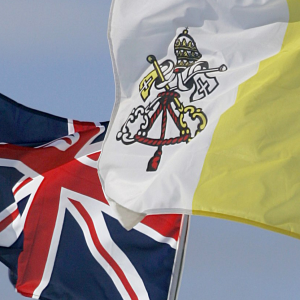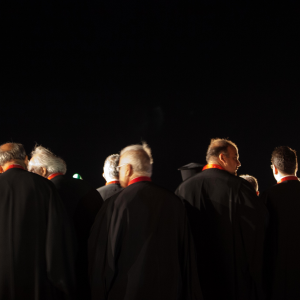The Orthodox Holy and Great Council wound up in Crete on Sunday with a declaration on several issues facing the world that had no place on the agenda of its week-long discussions of internal problems of the Orthodox Church.
The Council’s message to ”the Orthodox people and to all people of good will” said follow-up meetings might be held every seven to 10 years and reiterated official support for dialogue with other Christians, the most hotly debated issue during the closed-door conference.
The Council, the first such summit in 1,200 years, then condemned the “morbid religiosity” of the violence committed by fundamentalists of various religions, called for peace in the Middle East, warned against the negative consequences of scientific progress and said “the present-day ecological crisis is due to spiritual and moral causes”.
The heads of the 10 participating churches celebrated a Sunday divine liturgy to mark the end of the meeting, which the churches of Russia, Bulgaria, Georgia and Antioch announced they were boycotting in the weeks before the sessions began on 20 June.
“The key priority of the Council was to proclaim the unity of the Orthodox Church,” the message said. “The existing unity needs to be strengthened and to bear new fruits.” It mentioned a proposal for follow-up councils “to be convened every seven or ten years” without offering any other indication if or when another summit would be held.
The Church attached “great importance” to dialogue with other faiths, especially with other Christians, it stressed. “The explosions of fundamentalism observed within various religions represent an expression of morbid religiosity. Sober inter-religious dialogue helps significantly to promote mutual trust, peace and reconciliation. The oil of religious experience must be used to heal wounds and not to rekindle the fire of military conflicts.”
It denounced the persecution of Christians and other religious minorities in the Middle East as well as the destruction of churches and cultural monuments, and urged countries taking in refugees “to continue to offer help to the limit or even beyond the limit of their abilities”.
The message, signed by all delegation members, criticised the secularisation of western societies and defended the “indissoluble loving relationship of man and woman as “a great mystery … of Christ and the Church”. The family that springs from marriage is a “little church”, it added.
The Orthodox Church does not adopt a position on every scientific question, the message said, but denounces “the gradual loss of precious traditions, the destruction of the natural environment and the questioning of moral values”. Science cannot answer moral questions, which the Church tries to respond to “through a bioethics … founded on Christian ethics and Patristic teaching”.
The message argued the present ecological crisis — a problem of special concern for Ecumenical Patriarch Bartholomew — had its roots in “greed, avarice and egoism, which lead to the thoughtless use of natural resources, the filling of the atmosphere with damaging pollutants and to climate change”.
It called religious freedom — the freedom of belief as well as the right to worship and provide religious education — a fundamental human right.
“The Holy and Great Council has opened our horizon towards the contemporary diverse and multifarious world,” it said in summary. “The Orthodox Church … is sensitive to the pain, the distress and the cry for justice and peace of the peoples of the world.”
Photo courtesy of Sean Hawkey




 Loading ...
Loading ...